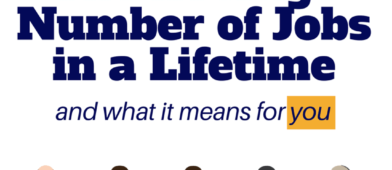The Pareto principle is often called the 80-20 rule and refers to the idea that 80% of the results come from just 20% of the work.
It’s an idea that has been pushed into a lot of different areas. Businesses often get their 80% of sales from 20% of their customers. 20% of the people earn 80% of the income, cite income inequality researchers. It’s been shown to be true empirically in a variety of areas.
What are the “Pareto’s” of personal finance? What are the things that, if you get right, account for the bulk of gains?
When I started this article, I wanted to list a few key ideas that encompassed the bulk of personal finance advice. I had all the classics – avoid credit card debt, get the company match to a 401(k), spend less than 30% of your income on housing, save at least 20%, etc. It started to feel like Harold Pollack’s index card of finance tips.
As I wrote and expanded on them, I realized they all followed one key idea.
I was looking for the Pareto Principles of Personal Finance but I instead found a Prime Directive.
Table of Contents
Prime Directive of Personal Finance
I call it the Prime Directive of Personal Finance (an homage to one of the greatest series of shows ever, of course):
Avoid committing future funds to spending obligations; commit them to saving obligations.
Or to put it more simply, Don’t spend tomorrow’s dollars today and save today’s dollars for tomorrow.
Your money is a proxy for your time. When you spend tomorrow’s dollars, you limit your options. When you save today’s dollars, you expand your opportunities.
If you follow this directive, and can recognize it in practice, you have 80%+ of all personal finance advice in just one sentence.
Avoid Credit Card Debt
Debt is a weight on your finances but it’s an acceptable one if it serves a greater purpose. Student loan and mortgage debt are two examples of where a (relatively) low interest debt serves a greater purpose (education, housing).
Credit card debt is bad because it’s expensive and it’s often not for something that will benefit you for many years. It’s also usually a sign that someone is living beyond their means, which is a polite way of saying you’re stealing from your future self.
If you did nothing else but avoid paying interest on a credit card, you’d be farther ahead than your peers who do. According to the Federal Reserve Bank of New York, Americans’ total credit card debt totalled $986 billion in the first quarter of 2023!
Let’s say that was around $6,000 per family… if you made minimum 4% monthly payments ($240) on a $6,000 balance with an 18.9% interest rate, it would take you 33 months and cost you nearly $1,700 in interest to pay it off.
If instead you invested that $52 a month in an index fund earning 8% per annum for just 5 years – you would have over $3,800.
That’s how ugly credit card debt can be.
How does the Prime Directive apply? When you take on debt, you’re taking on an obligation to pay back that debt with interest. If you rack up credit card debt, you’ve spent tomorrow’s money. You’ve committed those dollars to the credit card company.
You would be far better to find ways to save up for your purchases so you aren’t obligated yourself to a company with such a high price tag.
Get Company Matches, Max 401(k)/Roth IRA
If your employer offers a retirement plan and especially if it comes with a company match on your contributions, take it.
It’s free money!
(The only exceptions are if your company’s fund options are so terrible and expensive that you lose money… but those are rare)
As for maxing out the 401(k) and your Roth IRAs, they’re both great vehicles for retirement savings. You should try to maximize your retirement savings, especially given the tax benefits, but that will depend a lot on your financial situation. The more you can save, especially early when your expenses are low, the better off you will be.
The National Institute on Retirement released a report that should open your eyes as to the state of retirement savings. 45% of working-age households (almost 40 million) have no retirement account assets. The median retirement account balance of all working households is just $2,500 and 62% of working households age 55-64 have retirement savings of less than 1x their annual income.
How does the Prime Directive apply? When you contribute to a 401(k), you’ve committed yourself to saving money for your retirement in a way that comes with a penalty. Since you get a tax deduction on your contribution, you will be forced to pay an extra 10% penalty on withdrawal if you do so before retirement.
The holds true for Roth IRAs too — but most importantly, saving anything puts you ahead of the (albeit glacially slow) pack by a significant margin.
Directive Can Be Broken… But Only With Good Reason
Like the Hippocratic Oath, there are exceptions.
Not every piece of financial advice adheres to the Prime Directive. There are financial commitments that make sense, they just need a good reason.
For example, insurance. Insurance is committing to spending but it serves an important purpose – protection.
When I was in my my mid-30s, I remember a period ten-ish years ago when my friends were getting hurt doing stupid things (tearing an ACL after jumping over trash cans) as well as mundane things (tearing an ACL getting into their car). Medical issues were seen as fluky or self-inflicted in your 20’s and 30’s.
Now that I’m in my early-40s, I have friends who are fighting cancer, friends who have beaten cancer, and those who have not. Life changes quickly.
Medical insurance and life insurance are financial commitments that have a clear and important purpose. While the goal should always be to avoid future financial commitments, it’s a goal with the caveat of purpose. Insurance is financial protection against life’s punches and you should be fully insured when possible.
A mortgage is another popular financial commitment. When we bought our house, we agreed to thirty years of fixed payments. It’s a very long financial commitment but it’s for a house within our budget and where we intend to live for the next twenty+ years. It’s less than 30% of our income, a key money ratio for us, and a commitment we’re happy to enter.
Your cell phone, your cable bill, your rent, and other similar shorter term commitments are no different. You sign a contract to make monthly payments and those commitments shouldn’t be entered into lightly because they limit your future.
Finally, not all commitments are as obvious as a mortgage. Kids are financial (and emotional!) commitments too… and as a father of four, I should note that they should not be had lightly either! 🙂




Love this line of thinking!
So much of personal finance can be boiled down to the few steps needed to be successful. Much of the rest of it is just fluff.
Just wanted to say… love the Star Trek reference!
Thanks 🙂
JIM, a great post indeed. Prime Directive! Aye Aye Captain! ?
🙂
Excellent reminder. Thank you.
You’re welcome Roanne! Thanks again for sharing these posts!
If the spending goal is within the next 5 years then it should not be met by an investing pot, but by a simple savings pot.
It is not clear that from your directive approach
That’s very true, that’s my approach to with how I save money I need within five years.
That said, I feel this post is broader than that and prescribes no direction in how you save… just that you save.
I’ve always been mindful of what I’m doing for my future self, but when you said that credit cards are practically stealing from your future self, my mind was blown! Great post as always, Jim.
Thanks Lisa!
Not only are you stealing from your future earnings, you’re doing so at such a high price!
Jim, I’m not sure if I’ve ever heard personal finance explained like this before, ‘commit your funds to future obligations.’ Thank you; good food for thought.
Great approach, Jim! And, I think insurance actually fits perfectly within the Prime Directive. You’re committing a small amount (relatively) of future funds to avoid committing a huge amount of future funds if something should go wrong. So you commit to a relatively small health insurance premium, to avoid committing your future funds to costly cancer treatment. Or a small amount toward renters/homeowners insurance to protect against paying big bucks to replace belongings after a fire.
Or, at least, that’s how Picard would rationalize it before blowing right past the Prime Directive… again. 😉
I’m a big fan of the Pareto principle. It holds true to so many aspects of life and when applied can help cut down wasted activity. I like your prime directive. So in other words, you’re saying value your money. If you’re going to commit it to a long-term stream of payments, make sure it’s for a good reason, like an education in a field that will actually land you a good job. I’m a big believer in financial education for kids. Principles like this should be taught to our kids before they begin making big money decisions that will… Read more »
“Value your money” is too broad a statement to be guidance though – everyone “values” their money, but to varying degrees. I wanted to find a statement that was broad but also prescriptive. You could take action with it, hence the phrasing I use.
Interesting perspective. The paradigm I’ve used as my over-arching principle is one of opportunity cost. Each financial decision I make today has an impact on my future self. If I spend now, I’m trading the earnings + interest my future self would have received had I invested that money. Either way, the prime directive is a great way to guide your decision making.